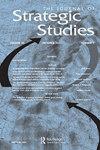巴印关系:对强权政治的批判性评价
IF 2
2区 社会学
Q2 INTERNATIONAL RELATIONS
引用次数: 0
摘要
巴基斯坦和印度的关系陷入了强权政治的泥潭,使两国成为具有相互竞争的身份和利益的对手。按照强权政治的逻辑,这两个邻国处于安全困境之中,陷入了持久竞争、军事化地缘政治和对抗性国家安全模式的困境。尽管存在长期的竞争,但印巴关系也有合作的背景,双方都表现出有序的关系,并为谈判让路。为了给这种状态与状态之间的振荡关系赋予意义,本研究对威胁感知的变量进行了研究,无论它是一种客观现象还是一种主观现象。为此,本研究旨在从斯蒂芬·沃尔特的威胁平衡理论的角度,揭开巴基斯坦与印度关系的神秘面纱。通过在他的模型中提出“侵略意图”的概念成分,沃尔特将威胁感知概念化为一种主观现象,这允许一个超越传统权力政治的正统和倒退逻辑的意义和行动的解放框架来理解巴基斯坦和印度的关系。本研究认为,两国的国家精英可以通过将他们的意愿和意图转变为更和平的行为和结果来缓和他们的紧张关系。本文章由计算机程序翻译,如有差异,请以英文原文为准。
Pakistan-India Relations: A Critical Appraisal of Power Politics
Pakistan-India relations are mired in power politics making the two countries as rivals with competing identities and interests. By the logic of power politics, the two neighbouring countries survive in a condition of security dilemma and are locked in patterns of enduring rivalry, militarised geopolitics and antagonistic national security paradigms. Despite the enduring rivalry, the India-Pakistan relations are also marked by contexts of cooperation where the two sides have exhibited orderly relations and given way for negotiations. In order to give meaning to this oscillating state-to-state relationship, the present study looks into the variable of threat perception whether it is an objective phenomenon or a subjective phenomenon. To this end, the study aims at demystifying Pakistan-India relations from the lens of Stephen Walt’s Balance of Threat Theory. By bringing up the ideational component of ‘aggressive intentions’ in his model, Walt conceptualises threat perception as a subjective phenomenon, which allows for an emancipatory framework of meaning and action that goes beyond the orthodox and regressive logic of traditional power politics to understand Pakistan-India relations. The present study argues that the state elites of the two countries can dial down their tensions by transforming their will and intentions towards more peaceful behaviours and outcomes.
求助全文
通过发布文献求助,成功后即可免费获取论文全文。
去求助
来源期刊

Journal of Strategic Studies
Multiple-
CiteScore
4.00
自引率
5.30%
发文量
40
期刊介绍:
The defining feature of The Journal of Strategic Studies is its commitment to multi-disciplinary approach. The editors welcome articles that challenge our historical understanding of man"s efforts to achieve political ends through the application of military and diplomatic means; articles on contemporary security and theoretical controversies of enduring value; and of course articles that explicitly combine the historical and theoretical approaches to the study of modern warfare, defence policy and modern strategy. In addition to a well-established review section, The Journal of Strategic Studies offers its diverse readership a wide range of "special issues" and "special sections".
 求助内容:
求助内容: 应助结果提醒方式:
应助结果提醒方式:


